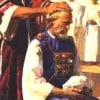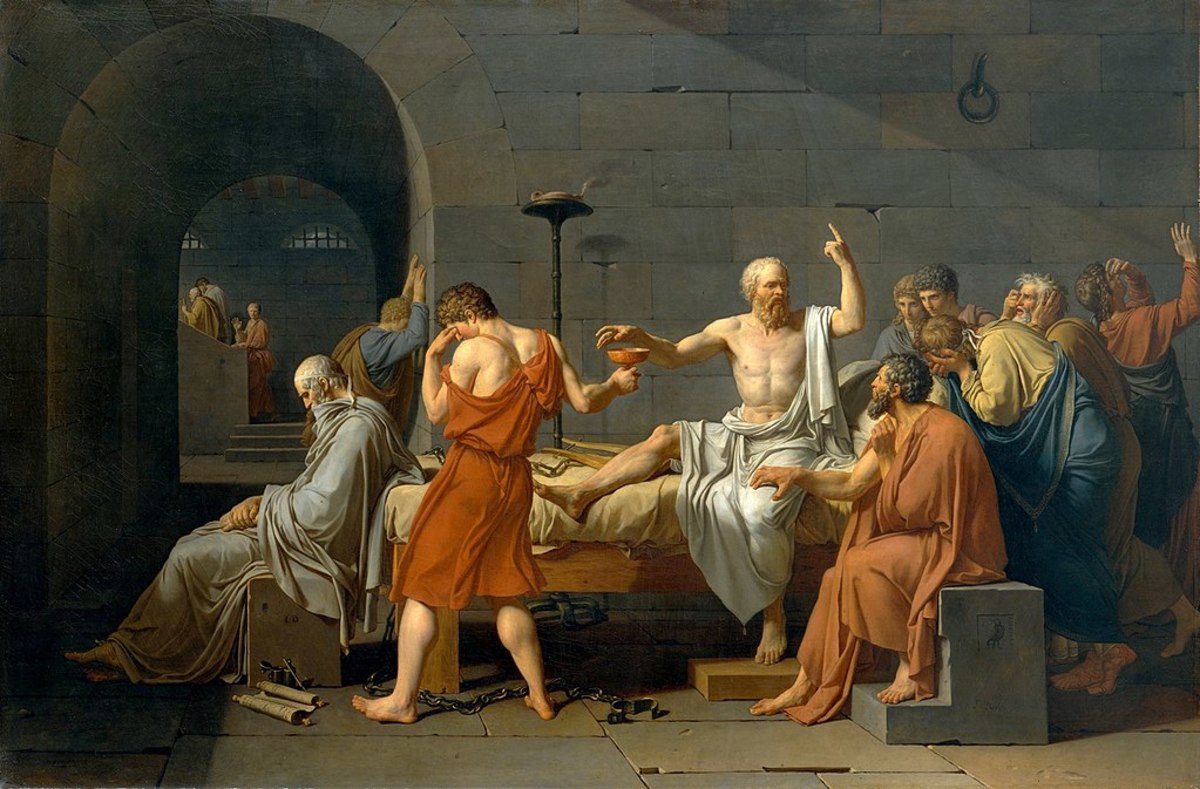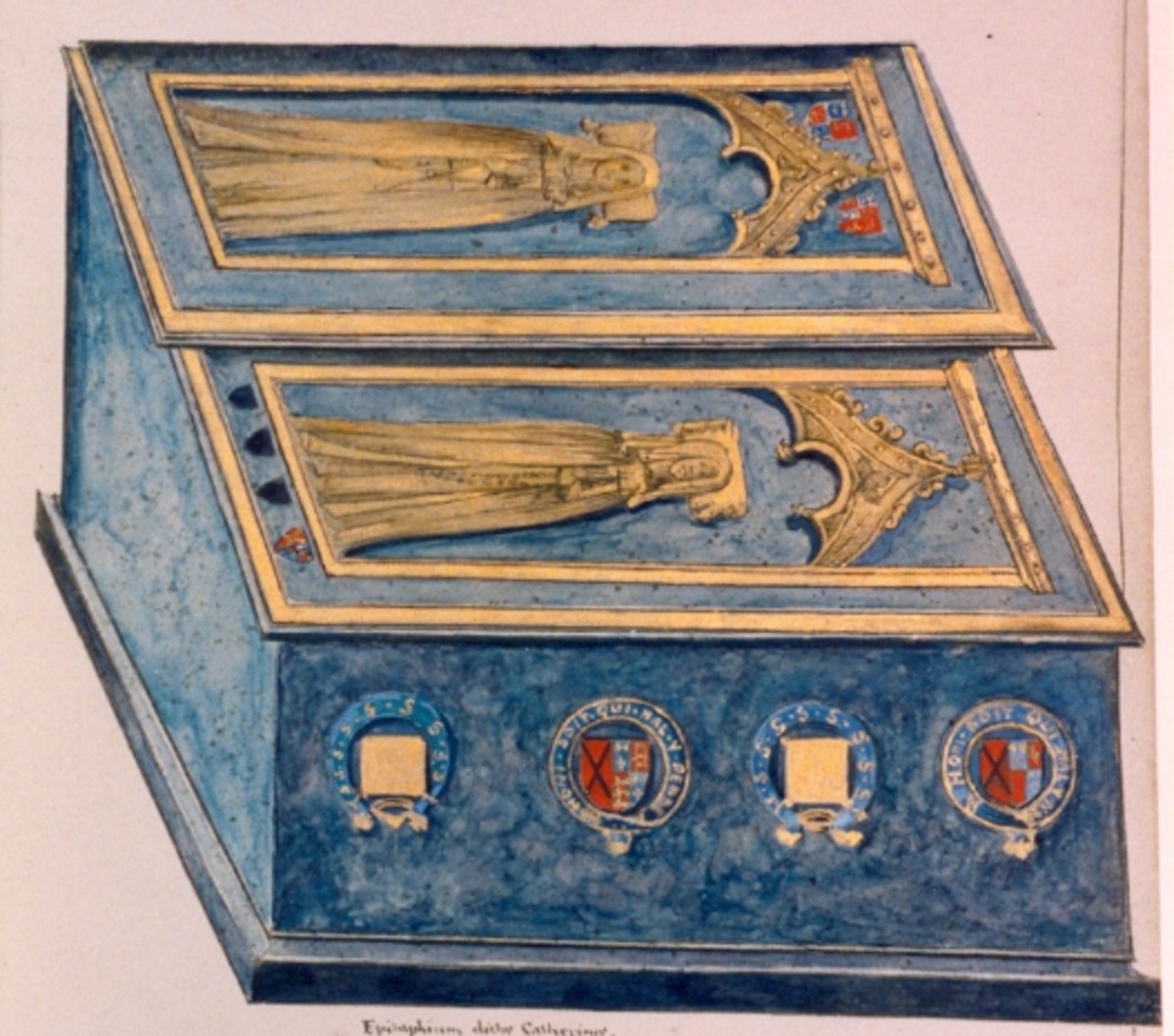Karaites and the Kahana
As you can read from my hub on the Khazar and the historical book on the Polemic entitled Khazari (http://hubpages.com/hub/Khazar) there are different versions of the book in existence even though the one in my library from 1795 may be a little hard to come by. What that leaves is the popular version by Judah HaLevi, the Sephardic poet and scholar being constantly reprinted with all the additions that he made. Unfortunately Judah HaLevi had an intense hatred for Karaites and therefore devoted large sections to his edited version of Khazari to attack Karaite beliefs and argue against Karaite interpretations. Hence what should have been a book on a fascinating piece of history involving the Khazars becomes nothing more than a Rabbanite anti-Karaite polemic. But with every article of anti-Karaite dogma we also glean important information that is useful and provides benefits elsewhere in understanding Karaite beginnings. So though Judah HaLevi might not have realized it, he was actually providing support to the Karaite argument that we were and are the original Judaism in our beliefs.
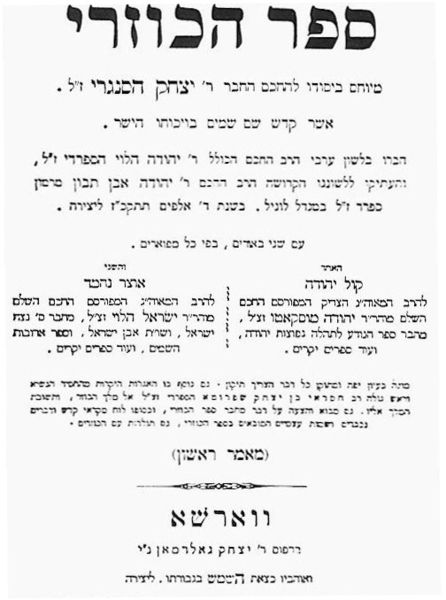
Borrowing from Mishna Avot
To back some of his arguments, Judah HaLevi makes use of the earlier book Mishnah Avot, Chapter 1 in which he tries to explain exactly where we Karaim have fallen off the rails. He says, "The next generation was that of the High Priest Simon the Just and his disciples and friends. He was followed by Antigonus of Socho of great fame. his disciples were Sadok and Boethos who were originators of the sects called after them Saddocaeans and Boethosians." He then borrows from another text and says, "He was followed by Joshua ben Perahyah whose history is known. Among his disciples was Jesus the Nazrene, and Nittai of Arbela was his contemporary." This is later followed by his comments, "As regards the Saddocaeans and Boethosians, they are the sectarians who are anathematized in our prayer. The followers of Jesus are the Baptists who adopted the doctrine of baptism, being baptized in the Jordan. The Karaites turned their attention to the fundamental principles, deducing the special laws from them by means of arguments. The damage often extended to the roots, through their ignorance rather than intention."
From these sentences its difficult to understand exactly which group HaLevi resents or detests most. It is very interesting that his view of Jesus was nothing more than a Jewish sect and that Jesus was a teacher that had been trained by Joshua ben Perahyah. Therefore Christianity was to him an offshoot of one these Jewish sects that he harbored ill feeling towards. As for Karaites, we are the product of the Sadducees and Boethians and as he mentioned even in the Amidah prayer the Rabbanites remind themselves how much of an anathema these two sects were.
Aristotelian Philosophy
It must be appreciated that much of the Karaite approach to the law and nature is based on Aristotle's approach to philosophy; man's place in the universe and how everything within nature interacts. Although Rabbanites will now insist that they have always been great followers of Aristotle and that Maimonides, the Rabbanite scholar unified Jewish beliefs with Aristotelian philososphy, this as I will demonstrate from HaLevi's writing at a similar time period was a tremendous stretch of the truth. Maimonides may have had a strong leaning towards Aristotle but that should not be interpreted as meaning all Jews had a strong leaning towards Maimonides. The fact that Aristotle presented a 'natural philosophy' which today we would interpret as Botany, Biology and Physics, studies which were not intially embraced by a large portion of Rabbanite Judaism and other religions because Aristotle searched for a logical explanation of their existence rather than a creationist approach. Even his comment that the size of the sun is greater than that of the earth and the distance of the stars from the earth many times greater than that of the sun, then...the sun shines on all the stars and the earth screens none of them, would have been heretical to the majority of Rabbanite Judaism that still believed the sun was nothing more than a sphere that went around the earth along with the stars and these were placed in concentric rings around the earth. That is not to say Aristotle didn't use a geocentric model of the universe, but that he had a more practical and logical approach to the study. Similarly, he defined all life as having a soul, whether it be plant or animal and only the degree of the soul changed as one moved up the scale of life. Furthermore, the attributes of animals were defined by need, for example ruminants had four stomachs because they didn't have teeth that could suitably grind their food. This was very different from the early Rabbanite Jewish approach that God created everything like an artist paints a canvas. It didn't have to be logical.
So with the Karaite attitude, as initially stipulated by Anan ben David referring to the Torah, that if we read a book and what it says seems good to us, then we can accept and believe in it, that made it far easier to adopt much of what Aristotle had to teach. Karaites recognized that Aristotle's rational deductive approach could be applied to the laws (halachah) and this sent Judah HaLevi into some of his most beligerant diatrbies against Karaites. He condemned Aristotelian Philosphy as it meant Karaites could justify approaching the study of the Torah and laws using human reason rather than relying on tradition. He even went on to say that the use of human reason, the questioning of why it is written, will lead to heresy. For example he condemns our philosophical approach for leading us into the heresy of denying life after death and failing to believe in resurrection. These are primary beliefs by Rabbanites, and although there are many Karaite communities that have adopted them too, there are still a large number of us that don't share these beliefs, instead following the earlier Karaite understanding of life without reward and punishment after death. Do I consider myself a heretic for not believing in these traditions? The answer is no and I'm certain as my third great grandfather, Jakob Kahana Goldenthal was writing his treatise on Aristotle, he also had no discomfort in the thought that he may have been a heretic according to Rabbanite standards either.
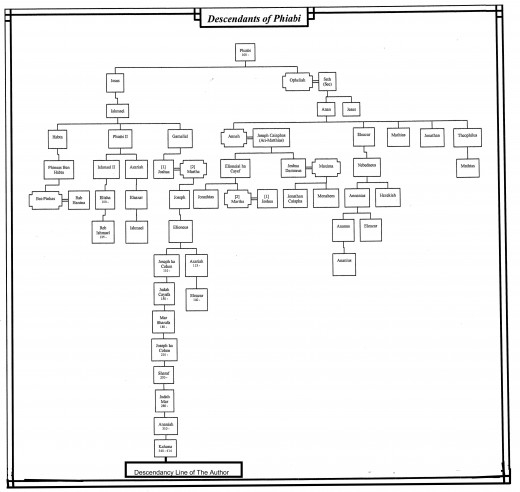
Through to the line of the Kahana
So where Judah HaLevi saw the Mishna Avot as a condemnation of all things Karaite, there is a Karaite version of this text which provides a somewhat different chronology of how the belief in the Torah and the laws were handed down directly to the Karaim. In this chain of events, "Antigonus transmitted it to Joseph ben Yoezer of Zeredah and Joseph ben Yohanan of Jerusalem. They transmitted it to Nittai the Arabelite and Joshua ben Parahiah. Nittai and Joshua transmitted it to Judah ben Tabbai and Simeon ben Shetah. In their time Simeon ben Shetah sought to ban the true written text. Woe! Judah ben Tabbai who stood in the breach made it clear the true faith, the faith of the Karaites, may the Rock of Ages protect them. He made strong and preserved His truth as it had been since the ancient days supported by clear truths." Here we see the Karaite version in which Simeon ben Shetah is attributed as being the father of Pharisees and hence Rabbanites but is defeated in his quest to replace the Torah with oral traditions. Of course we know this didn't happen and Rabbanites became dominant but we're entitled to our own happy ending to a story as well.
From what I have disclosed thus far, it is evident that prominent Rabbanites like Judah HaLevi were not above peforming extensive editing on ancient texts in order to disseminate their anti-Karaite messages. And in response, I will admit that as Karaites we would equally alter a text to defend our beliefs. With all these changes, the difficulty is in establishing what was the original content of the text and how much has it been distorted. I think my third great grandfather asked himself this question quite a few times. And the more I read his texts and manuscripts, the more I come to the realization that he did find the answer quite often as well. One of the messages he passed down through the family was that we were descended from the house of Phiabi, which I've mentioned in quite a few hubs. Furthermore, as our original family title was Kahana, he made it perfectly clear that we could directly show our line of descendancy from the Yom Tov Kahana seen in http://hubpages.com/hub/Prince-of-the-Jews. Because of Yom Tov's own genealogical records, tracing back another thousand years was quite easy but finding the actual connection between the house of Phiabi and the origin of the title Kahana would be nearly impossible. But to Jakob Goldenthal with his strong belief that the answers would still lie in these ancient texts no matter how much they were distorted by later editors preaching their own personal polemics, it was only a matter of time to find the answer.
Following from the Karaite response to Judah HaLevi's version of the Mishna Avot it continued that, "Judah ben Tabbai transmitted it to Shemaiah; and Shemaiah to Rev Shammai who transmitted it to Rav Kahana the Priest ben Eloni." In his research Jakob Goldenthal confirmed that Eloni being referred to was none other than Elioneiai the son of Caiaphas. Now there are historical documents available by which we can make some connections. It is documented that the children of Elioneiai were his son Jonathias and his daughter Martha. And Martha married Jeshua ben Gamaliel of the House of Phiabi. And as we are aware from my family, Kahana was a title and not a proper name. Therefore the son of Eloni from the Chain of Transmission was being referred to as the Kahana (or the Great High Priest) and this was not his proper name. As the House of Phiabi was referred to as that line of priests with the greatest claim to the high priesthood, then it would stand to reason that the son they were referring to was actually the son-in-law and none other than Jeshua ben Gamaliel. Since we already knew historically that Jeshua had married Caiaphas's granddaughter it would identify this as the moment in history when the family obtained officially the title of Kahana. Jeshua was the first and it was carried forward from then on.
The Karaite Chain of Transmission then lists the sons of the son from Kahana which differs from the genealogical chart attached. As this chart was looking at the lines that formed the ancestry in my family it overlooked brothers and sisters along the way. Some of whom I believe would explain the Chain of Transmissions genealogical record leading to the family of Anan ben David. Although our families were related, intermarrying time and time again through distant cousins it resulted in two distinct Chains of Transmission. What is most striking is that the names used in both lines are practically identical as both families preserved the traditions of naming after dead ancestors.
Considering that Judah HaLevi's entire goal was to disparage the historical accuracy and beliefs of the Karaites of which the historical component was and is critical, he actually provided us with a great service. By forcing a response from Karaite scholars he inadvertantly made us preserve our historical documentation to a much higher standard than the Rabbanites had which made it possible for later scholars such as my third great grandfather in the 19th century to fill in some of the gaps that existed, thus highlighting the fact that as Karaites we have a continuity from ancient times that only confirms that our beliefs are a direct extention of the same Judaic practices from Temple times.
